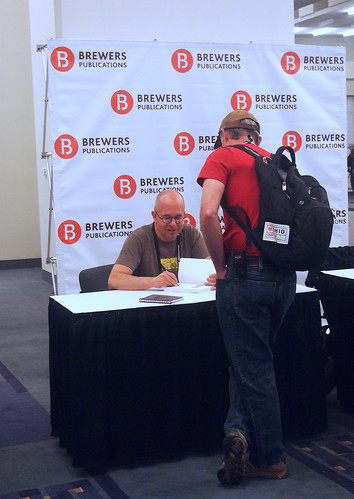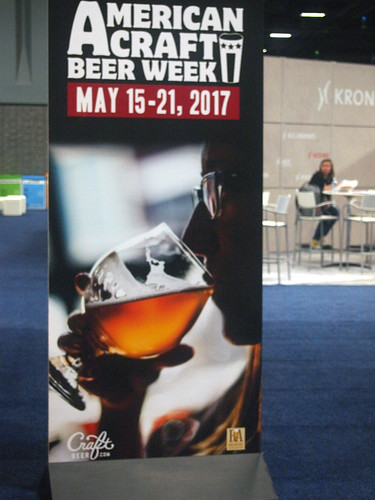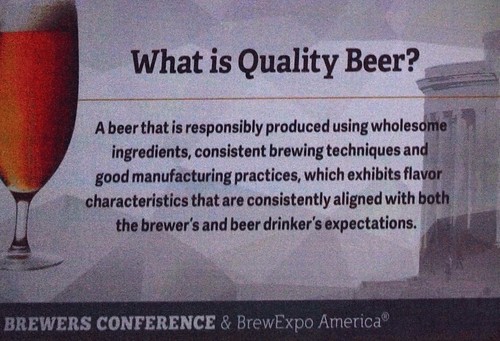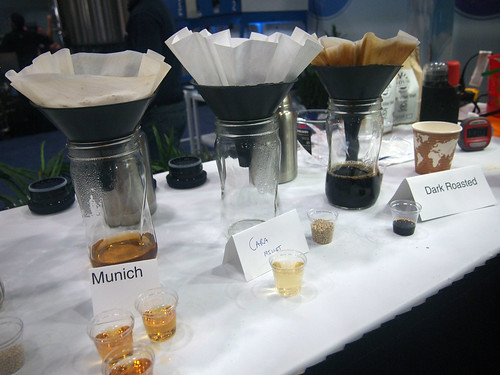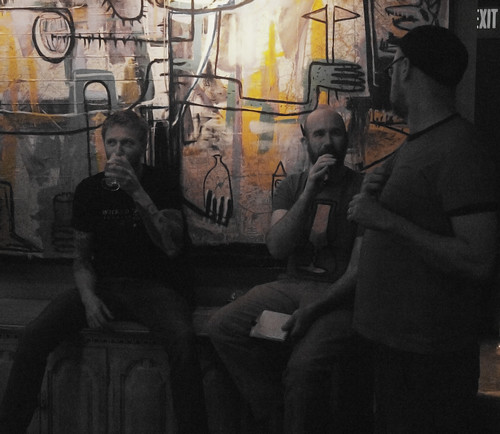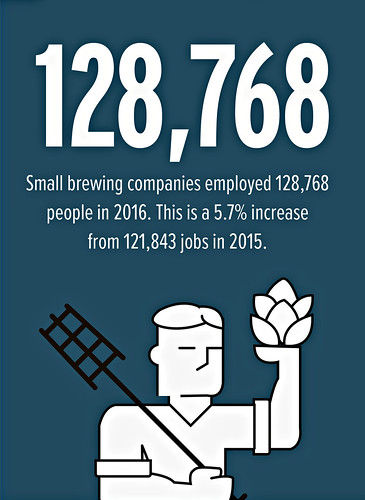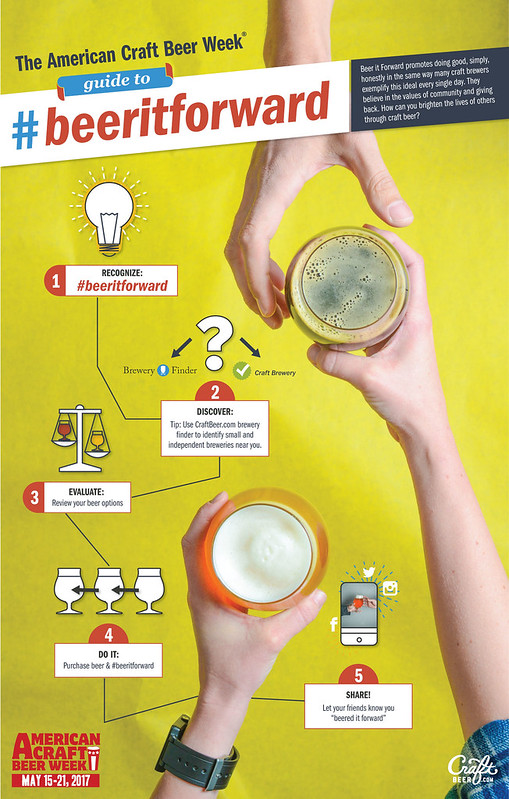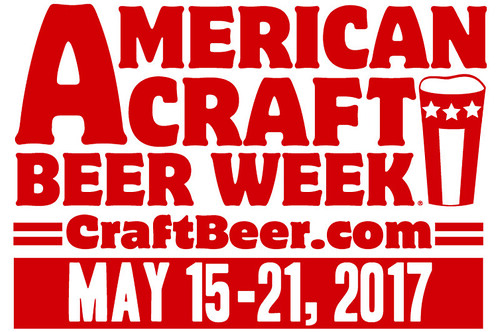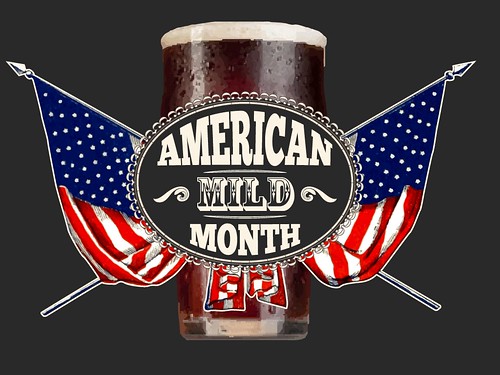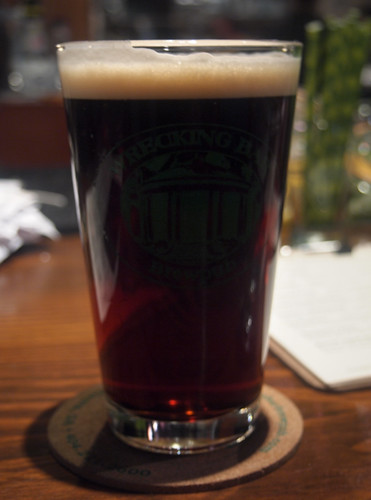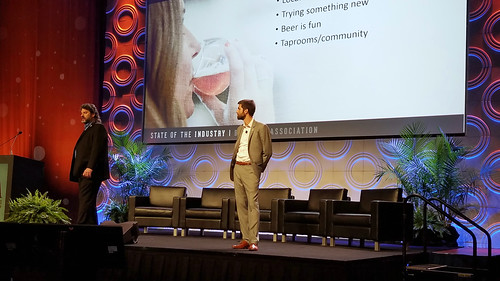
A bi-weekly, non-comprehensive roundup
of news of beer and other things.
Weeks 19/20
7 May- 20 May 2017
- 18 May 2017
Consolidation of traditional "twiggy brown bitter" breweries continues apace in the UK, as Marston's purchases Charles Wells.Marston’s is acquiring the Charles Wells Brewing and Beer Business for £55 million [$70.4 million dollars] and loose change (or “working capital adjustments”), at a pretty conservative 5.5 times EBITDA, adds another five historic old brewery names, Courage, McEwans, Young’s, William Younger’s, and Wells, to a portfolio that already reads like the line-up at a quite good small beer festival circa 1990: Marston’s itself, Banks’s, Jennings, Thwaites, Ringwood, Wychwood, Brakspear, Mansfield, Mitchells (with Lancaster Bomber), and, if you include beers Marston’s brews under licence, Bass and Tetley.
—Via Martyn Cornell, at Zythophile. - 18 May 2017
Chris Cornell, a key figure in the grunge rock movement as the lead singer in the seminal Seattle, Washington-band Soundgarden, died in Detroit, Michigan, after a concert, at age 52.
—Via Washington Post. - 18 May 2017
Peter Bouckaert —for 21 years the brewmaster for New Belgium Brewing in Colorado, USA, and, before that, for Rodenbach in Belgium— is leaving New Belgium to open Purpose Brewing and Cellars, a brewery and coffee-house in Colorado. While at New Belgium, Bouckaert launched its sour barrel-aging program well before the current 'sour' movement in 'craft' beer. He is the co-author (with Dick Cantwell) of "Wood & Beer: A Brewer's Guide." In 2013, the [U.S.] Brewers Association awarded him its "Russell Schehrer Award for Innovation in Craft Brewing" in recognition of his achievements in and contributions to the art and science of 'craft' brewing.
—Via Porch Drinking. - 17 May 2017
The Department of Justice's Deputy Attorney General, Rod J. Rosenstein, appoints Robert S. Mueller III, a former F.B.I. director, as special counsel to oversee the investigation into ties between President Trump’s campaign and Russian officials and whether and how Russia interfered in the 2016 presidential election. A special counsel can only be fired for cause. Attorney General Jeff Sessions has recused himself.
—Via New York Times. - 17 May 2017
The [U.S.] Brewers Association has released the 2017 edition of its Beer Style Guidelines (which it first created in 1979).The Brewers Association Beer Style Guidelines are compiled for the Brewers Association (BA) by Charlie Papazian, copyright 1993 through and including 2017, with Style Guideline Committee assistance and review by Paul Gatza, Chuck Skypeck, Chris Swersey and suggestions from Great American Beer Festival® and World Beer Cup℠ judges. [...] It is very difficult to consistently align analytical data with perceived character. It is also very difficult to consistently align written beer descriptions with analytical data and perceived character.
—Via [U.S.] Brewers Association. - 15 May 2017
American Craft Beer Week —organized by the [U.S.] Brewers Association for the twelth consecutive year— runs 15-21 May 2017.
—Via YFGF. - 15 May 2017
The U.S. State Department has accused the government of Syrian President Bashar Assad of torturing and executing between 5,000 and 13,000 people in its Sednaya prison from 2011 to 2015. Many of the bodies are then burned in the crematorium "to cover up the extent of mass murders taking place," said Stuart Jones, the top U.S. diplomat for the Middle East, accusing President Bashar Assad's government of sinking "to a new level of depravity."
—Via New York Times. - 14 May 2017
The Moving Pictures Experts Group Audio Layer III —aka mp3— is dead. The Fraunhofer Institute —in Germany— which has held the patents announced in April that it was ending its licensing program. mp3 —developed by the Moving Pictures Group consortium in 1991— is a technology that allows a music or audio file to be compressed down into a very small amount of space but with consequent loss of musical information. So, long live vinyl, or, at the very least, Advanced Audio Coding, aka the AAC format.
—Via Gizmodo. - 12 May 2017
Georgina "George" Young became head brewer for Fuller's Brewery, in London, England, in 1999, the first female head brewer in Fuller’s 172-year history.We have a saying here at Fullers: You don’t really appreciate how good London Pride is until you’re on about your third pint.
—Via Washington City Paper. - 12 May 2017
French vs. U.S. oak in wine:The finish is the memory of the wine. American oak is aggressive and has a large impact on the wine. It adds coconut and dill flavors, which can mask underripe, vegetal flavors in the wine. If the finish is rough and bitter, that’s what you remember. French oak knits the fruit together, orchestrating the flavor statement so it is round and soft, and the finish is supple.
—Via Rob Davis, winemaker, Jordan Vineyard & Winery, (at Washington Post). - 10 May 2017
How could Anheuser Busch's takeover of SABMiller affect 'craft' brewers? Squeeze hop supply, as it's doing with South African hops.
—Via DRAFT. - 10 May 2017
Standards of good service —and instruction in them— are badly needed at many of America's brewpubs and 'craft' beer bars. [For an anecdote, see the embedded tweet below.]The Brewers Association (BA) is pleased to announce that Tim Brady of Whetstone Station Restaurant and Brewery [Brattleboro, Vermont] has been appointed as the first Beer Server Training Manual instructor. Brady will work with BA staff to create a training program based on techniques from the Brewpubs committee’s Beer Server Training Manual, with a goal of highlighting the free resource and the importance of staff training. [...] Brady is an active member of the [BA's] Brewpubs Committee, a strategist with a Vermont marketing firm, and an instructor for the University of Vermont Business of Craft Beer program."
—Via U.S. Brewers Association. - 10 May 2017
More pay-to-play discovered in Massachusetts beer industry. Last time, it was a craft beer distributor. Now, it's (surprise?) an Anheuser-Busch wholesaler.A 14-month investigation by the Massachusetts Alcoholic Beverages Control Commission (ABCC) into a wholly owned Anheuser-Busch wholesaler has resulted in charges that the beer distribution company illegally provided nearly $1 million in free equipment to retailers, according to the Boston Globe, who first reported the story.
—Via Brewbound. - 9 May 2017
President Trump fires FBI Director James B. Comey, citing the recommendation of senior Justice Department officials who said he had treated Hillary Clinton unfairly and in doing so damaged the credibility of the FBI and the Justice Department.
—Via Washington Post. - 9 May 2017
What is a 'quality' beer? Here's how the [U.S.] Brewers Association defined it, during a panel discussion by its Quality Subcommittee at the 2017 Craft Brewers Conference.A beer that is responsibly produced using wholesome ingredients, consistent brewing techniques, and good manufacturing practices, which exhibits flavor characteristics that are consistently aligned with both the brewer's and beer drinker's expectations.
—Via YFGF. - 8 May 2017
The Governor of Georgia signs Georgia Senate Bill 85 into law. Among other things, the bill allows Georgia breweries and distilleries to sell their products directly to consumers in their taprooms. The law won't take effect until 1 September. A similar law in Mississippi takes effect 1 July.
—Via Atlanta Journal-Constitution. - 7 May 2017
Emmanuel Macron, a thirty-nine-year-old former investment banker who had never held elected office, wins France’s presidential election, defeating the staunch nationalist Marine Le Pen by a margin of 66 to 34 percent; his call for centrist change preferred by French voters to Le Pen's far-right and nationalist messages.
—Via CNN.
Brewpub exchange.
— YFGF (@Cizauskas) May 24, 2017
Me: "Do you have anything cask-conditioned?"
Server: "I don't drink."

